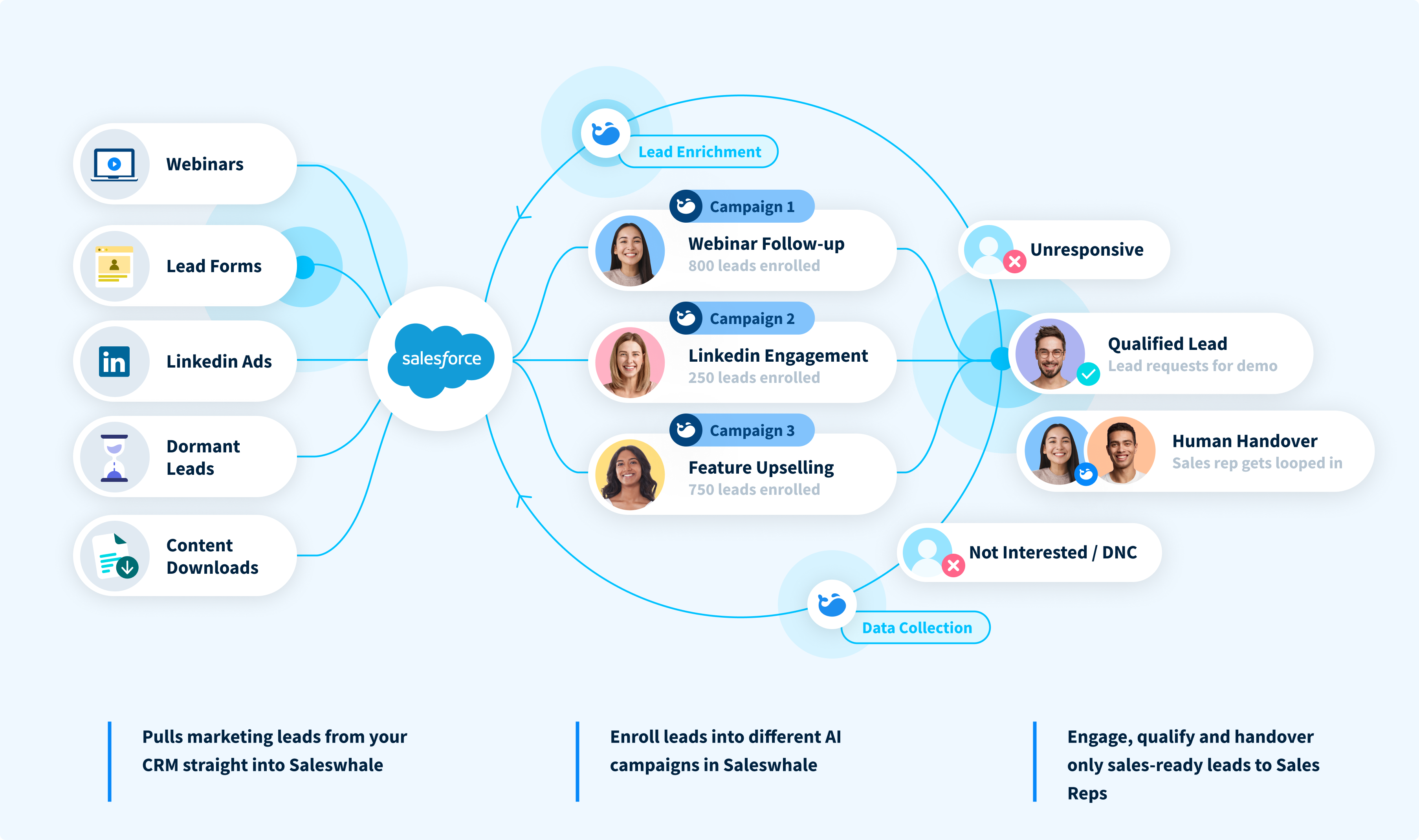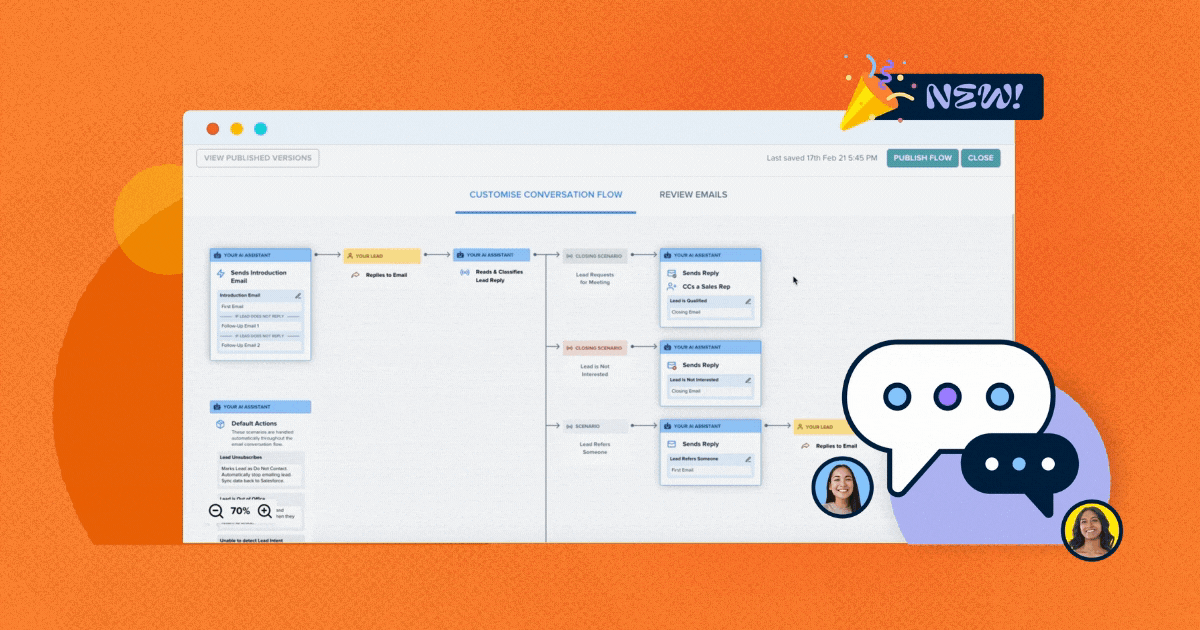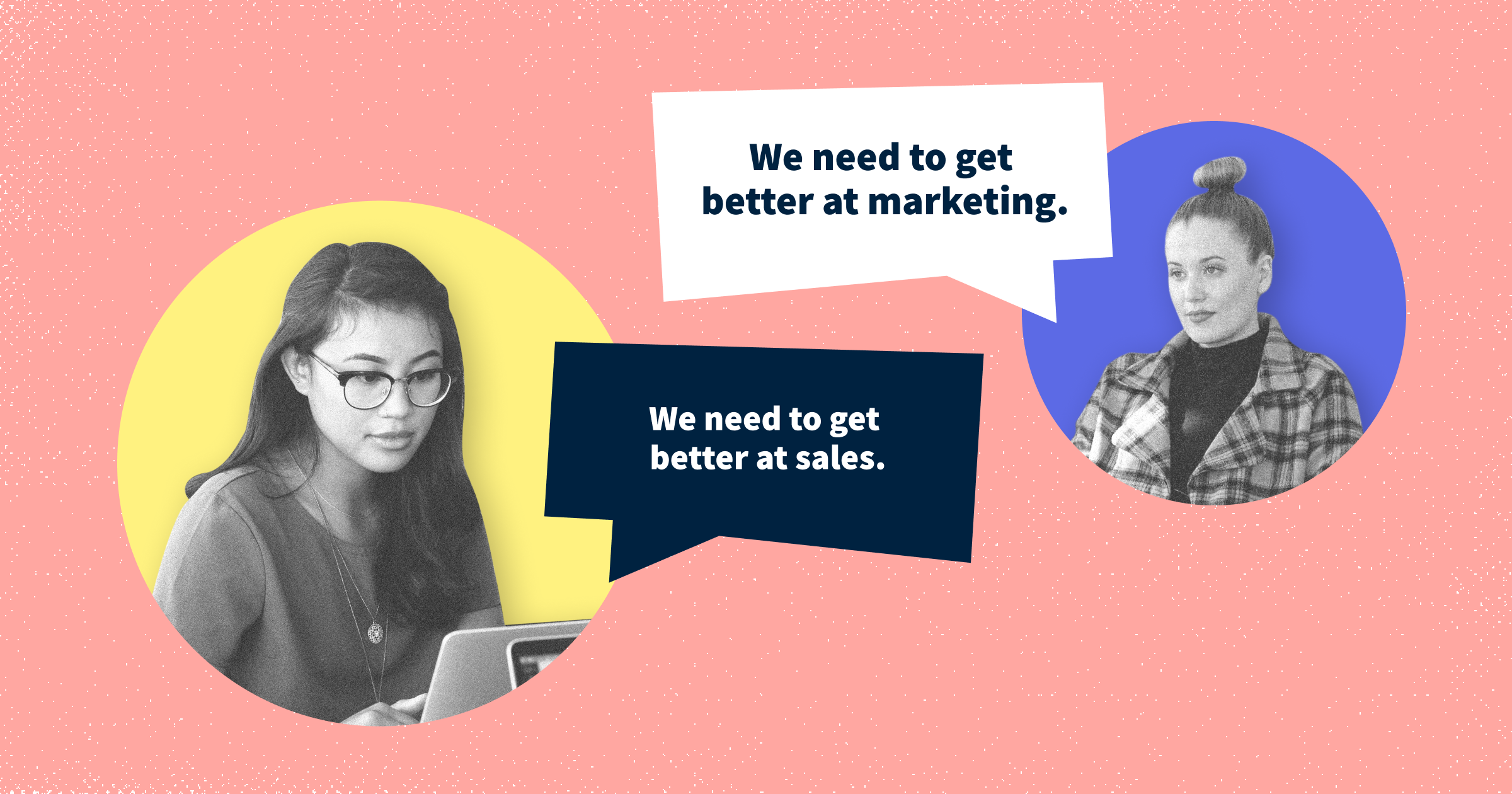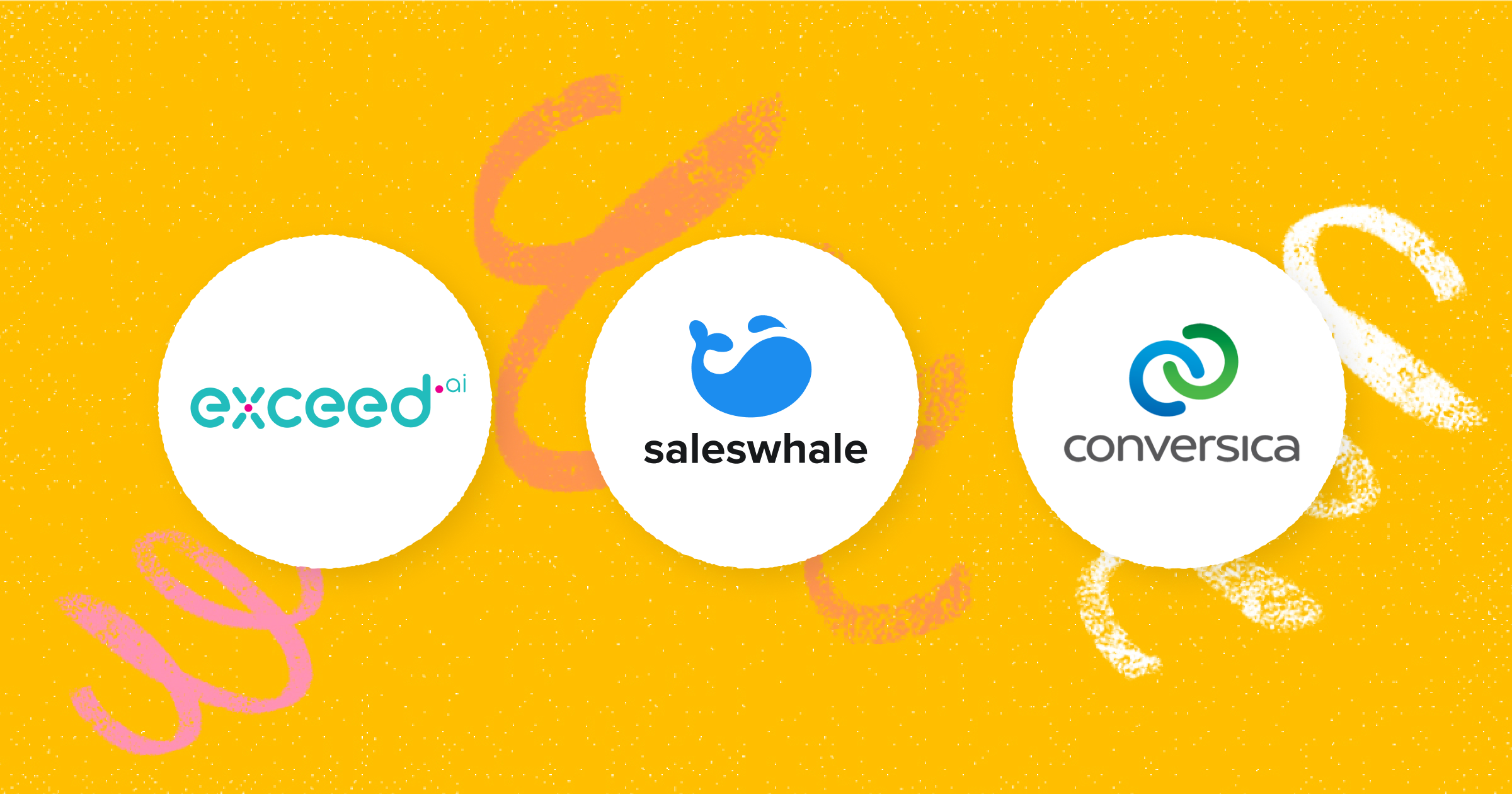Saleswhale Blog | 9 Min Read

One of the key lessons we took away from our time at Y Combinator was the importance of company culture.
In my opinion, culture is not about ping pong tables or free-flow beers at happy hour. It’s not even about having fun at work, or even liking the people you work with.
When I surveyed some people who work in other startups and asked them, “What does culture-fit mean to you?” I tend to get back some variation of “I wouldn’t be friends with this person in my non-work life.” How interesting!
I personally think that this a terrible way to choose who to hire and not hire. Companies that hire like this tend to end up with many people that look the same, sound the same, and think the same way. Paradoxically, that’s not a great culture.
To me, culture is the operating system for a company. It governs how people make decisions and interact with each other. It is a rubric for how we hire, who we promote, who we reward, or let go.
A more rigorous way of articulating what a company’s culture is, and what is expected of team mates who work at Saleswhale, is our core values.
Core values cannot be aspirational. They have to be authentic; they should describe the reality of life in your company. Core values are things that we live, breathe, and strive for harder than anyone else. That’s why it’s important for founders to be intentional about their core values and culture from day one.
It’s one thing to have a defined set of core values. But embodying your values, and staying true to them, is hard.
For example, every company today wants to be transparent. It’s easy to be transparent when things are going well. But what about when the chips are down? Do you tell employees that you only have 0.7 months of runway left in the bank? Do you tell employees that a key employee is resigning because you screwed up as a CEO and share the events that led up to the resignation? Or do you sweep it under the rug?
At Saleswhale, three key values have emerged as fundamental to our culture and identity:
They’re not just nice words that we hang on walls (but hang them on walls we do!). Today, they govern a lot of the decisions we make, how we operate, and how we treat each other.

Our Customer Success intern, Yiran Ning, and the Saleswhale core values posters she designed!
At its core, transparency is really about context and high velocity decision making.
As a fast-growing startup, we want to push the ability to make decisions and judgment calls down through the ranks. We want to localize decision making as much as possible.
This is antithetical to most decision-making processes at large, traditional companies. There, you have to seek your boss’s approval, who then has to seek her bosses’ approval, who then has to convene an internal committee to make the decision.
I believe that if we don’t allow more people to independently make decisions consistent with our company’s goals, we will lose momentum and stall out. Extreme transparency up and down the ranks builds trust and gives context. This allows us to operate faster and better.
How does transparency look like at Saleswhale?
We have an internal wiki where people can access confidential information. For example, the minutes from our weekly leadership meetings and board meetings. We also share board decks, board memos, and key financial metrics (such as our runway), with our employees.
We err on the side of over-communication. Especially when it comes to potential problems and challenges, even if they ultimately do not occur.
As one of our team members, Fan Pu, puts it, “Things happen on a probability scale.”
When we surface potential issues, our team members are mentally prepared to accept the risk, and we give them the ability to react and respond.
Before our Series A funding, there was a point in time when we had less than three months of runway in the bank. The leadership team was upfront about our cash situation with the team, as we counted down the months together.
Here's why we were utterly transparent with the team:
(a) I didn’t want to take away my employees’ agency. I believed that the team should be given a chance to decide if they want to stick it through with the company, or start looking for a new job. As CEO, of course I wanted every employee to stay the course with us. And I would do my best to reassure, inspire, and plead for them to remain. But I should not deny them the choice to stay or go; or worse, “surprise” people with sudden layoffs like I’ve seen in other startups.
(b) I believe that we hired well, and have a team of smart and resourceful people. Sharing the context would help us band together to solve this problem. We were able to focus on cutting burn (without any layoffs), collecting accounts receivables, dialling up sales, holding off on expensive software purchases etc. People were able to make the right decisions because they knew of the challenges besieging the company.
I’m proud to say that we managed to prevail as a company, without losing anyone in those three months.

Team Saleswhale! This photo was taken during our company offsite, about two months after we raised our Series A funding
Does Saleswhale sound like the kind of place you’d love to work at? We are hiring across many departments, apply now!
Intellectual rigor is clarity in thinking. The ability to reason from first principles, think deeply and with flexibility when faced with new knowledge and arguments.
Intellectual rigor does not mean high IQ. It’s more of a function of humility.
What I’ve noticed over time is that people without intellectual rigor dislike it when people challenge their ideas. They take it personally. They are not open-minded enough to change their opinions if contradictory evidence or data surfaces. We frown upon such behavior in Saleswhale, as it prevents us from being truly innovative in solving tough problems for our customers.
I find that vigorous and healthy debate, without regard for rank or hierarchy, is a great way to force rigor.

One of Saleswhale's weekly (stressful) sales meetings
Debate is something we value at Saleswhale. We think that conflict (respectful and non-personal) is essential for great relationships. We are direct in giving critical feedback, and we believe that no one should hold a critical opinion without speaking up about it. A good example of open debate is the kind we often have during our monthly town halls. Our town halls are boisterous affairs that involve plenty of back-and-forth exchanges about various decisions and the rationale behind them.
At Saleswhale, it’s okay to challenge your CEO or managers, if you feel that there’s a better way to do something. It’s important that our employees don’t fear authority and are willing to engage superiors in debate. We value people who speak truth to power.
When we have a healthy and open exchange of ideas, we allow the best ideas to win, instead of the “highest paid person’s opinion”, like in many traditional corporations.
This core value ranks as the number one reason why Saleswhale may not be for someone. It’s a polarizing core value. Some people don’t take well to criticism, especially criticism from their subordinates. Others might be uncomfortable with debating with people who conduct their performance reviews and sign their pay cheques.
That’s OK. Saleswhale is not for everyone.
This concept comes from the book, Radical Candor by Kim Scott.
Contrary to misconceptions, Radical Candor is NOT brutal honesty. It is not front-stabbing or a license to be a jerk.

What is (and isn’t) Radical Candor. Image credit: Kim Scott
The whole idea of Radical Candor is to Care Personally and Challenge Directly. It’s not a false dichotomy of choosing between being a jerk or being incompetent.
Think about it this way: if you really care for someone, you will tell them if you think they are making a mistake. You will also tell them when you think they are doing something great.
The point of Radical Candor is to rapidly accelerate growth through fast and regular feedback cycles. This is how companies build great products. We believe it’s also what helps to build high-performing teams.
As clever as I think most of my teammates are at Saleswhale, we all have our blind spots. I certainly do. Without Radical Candor, we remain unaware of these blind spots and don’t have the chance to improve. In many traditional corporations, most people won’t be bothered to give you candid feedback. Instead, they prefer to backstab, gossip behind your back, or engage in political gamesmanship.
Here’s an example of Radical Candor in action:
During one of the product discussions for a major feature, I was being petulant because I was not getting my way on a feature I was advocating hard for with the feature team.
One of our software engineers told me, “Gabriel, we really need you to participate constructively now. If you cannot do that, then it’s best if you leave the room to avoid derailing this meeting.”
It was the splash of water I needed to refocus. It helped me put my petty inclinations aside, and contribute properly to the product meeting. I wasn’t offended. In fact, I appreciated that.
The feature team could have kept quiet during the meeting, and then gossip behind my back. “The CEO is being crazy again. Did you see how hard he fought for that petty feature? I hate that he keeps doing this during our product meetings. Why is the CEO joining product meetings again, anyway?” Or, they could have been yes-men and indulged my insolence. “Oh yes, the petty feature you are asking for sounds great, Gabriel, let’s do it.”
Instead, we were able to disagree and commit because someone had the courage to call a teammate out respectfully, when they felt the teammate could be conducting themselves better.

Some of our feature team members. From left to right: James Keys (engineer), Asher Chua (product manager), and Nicholas Koh (engineer)
This is just one example. We practice this on a micro-level as a team, hundreds of times a week, giving small pieces of feedback. Here are some of the feedback I’ve seen people giving:
“Hey I think you were a tad verbose during your presentation earlier. I could see some people zoning out where you were reading your slides word for word. Here’s how I think you can do better next time…”
“I think you confused the client earlier. Perhaps instead of asking the client what their success criteria is, maybe we can give some benchmarks across our customer base.”
“You should budget for some slack time in your quarterly planning, because I saw you got burnt out and overwhelmed during the last quarter when big, unexpected things cropped up.”
“Hey I know it sucks losing that sales deal, but where I think you could do better next time is try to multi-thread the deal with more decision makers and socialise it more internally. I am happy to walk you through how I do it, if you want.”
I believe that success in life is correlated to how many tough conversations a person is willing to have. People who are stagnant avoid tough conversations. I believe the same is true for a company.
Does Saleswhale sound like the kind of place you’d love to work at? We are hiring across many departments, apply now!


Catherine Farley is the Director of Marketing at Saleswhale. She has 10+ years experience designing unimaginable marketing campaigns and storytelling. Catherine is the proud owner of two Great Pyrenees and due to their shedding is rarely seen wearing black.
Sign up for cutting edge ideas on conversational marketing, AI assistants and martech.

Saleswhale for Salesforce allows you to build powerful automated lead conversion workflows. This allows you to re-engage with your neglected marketing leads at...
19 APR 2021

Demand generation and marketing teams generate more leads at the top of the funnel than ever in this new digital-first world. Saleswhale helps ensure those...
1 MAR 2021

Marketers that focus on MQLs end up doing the wrong things in order to achieve the metrics. So I changed it.
16 JUN 2020

Conversica isn't the only player out there. Learn how Saleswhale and Exceed.ai compare and make an informed decision.
15 APR 2021
By providing your email you consent to allow Saleswhale to store and process the personal information submitted above to provide you the content requested.
You can unsubscribe at any time by clicking the link in the footer of our emails. For information about our privacy practices, please visit our privacy page.